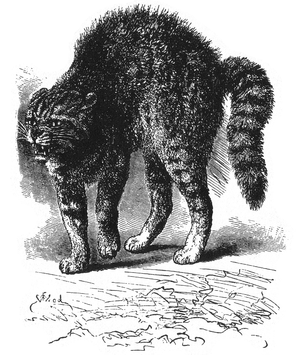 Image via WikipediaPersonality and Motivation | The Mouse Trap
Image via WikipediaPersonality and Motivation | The Mouse TrapI have blogged extensively about personality and how it may be related to emotions. A common theme underlying my discussion of personality and emotion has been these traits/states arising as a result of adaptation to basic evolutionary tasks orproblems that each living organism/species has to solve. Where there are problems to be solved or tasks to be accomplished or goals to be achieved, there is also going to be motivations and drive to achieve them and underlying needs that drive that pursuit. Thus motivation and Personality/ emotion are also intricately linked and associated when one uses the underlying basic adaptive problems paradigm.
In my last post I had mentioned that Personality can be discussed in just descriptive terms as in trait theories, the most famous of which is the five factor model of personality or one could look at the underlying processes and mechanism and come up with theories that are grounded in motivational or cognitive terms as to what actually drives the behavior in consistence with the observable traits and behaviors.
I have recently come across an important paper in my view which tried to bridge this gap by explaining the motivational systems (or reaction norms as they call it) underlying the five factor model of personality.
To recall, the five factor model or OCEAN model posits the following five factors:
- Neuroticism or sensitivity to negative affect
- Conscientiousness or ability to delay gratification and persist with task at hand
- Extraversion: propensity to socialize and be more outgoing
- Agreeableness: empathetic and cooperativeness
- Openness to Experience: Intellect and curiosity etc.
Now, I have elaborated or tried to explain the OCEAN traits as per my understanding, but Dennissen and Penke looked at how prominent personality researchers have interpreted the traits to arrive at a common motivational framework that is grounded in theory and then they developed a scale in accordance with theory to measure these motivational reaction norms – the important difference from tradition FFM message scales being that all statements referred to underlying motivations/ propensities etc and did not refer to specific behaviors in specific situations. They then subjected their scale to factor analysis that came with a five factor structure that was consistent with FFM and also had predictive validity of similar sorts. They thus conclude that their theoretical framework is on the right track.
There are of course problems with such can interpretation, but I found some of their motivational reaction norms pretty consistent with my basic adaptive problems and basic developmental life tasksparadigm, while some I could find were slightly different or more nuanced interpretations.


No comments:
Post a Comment